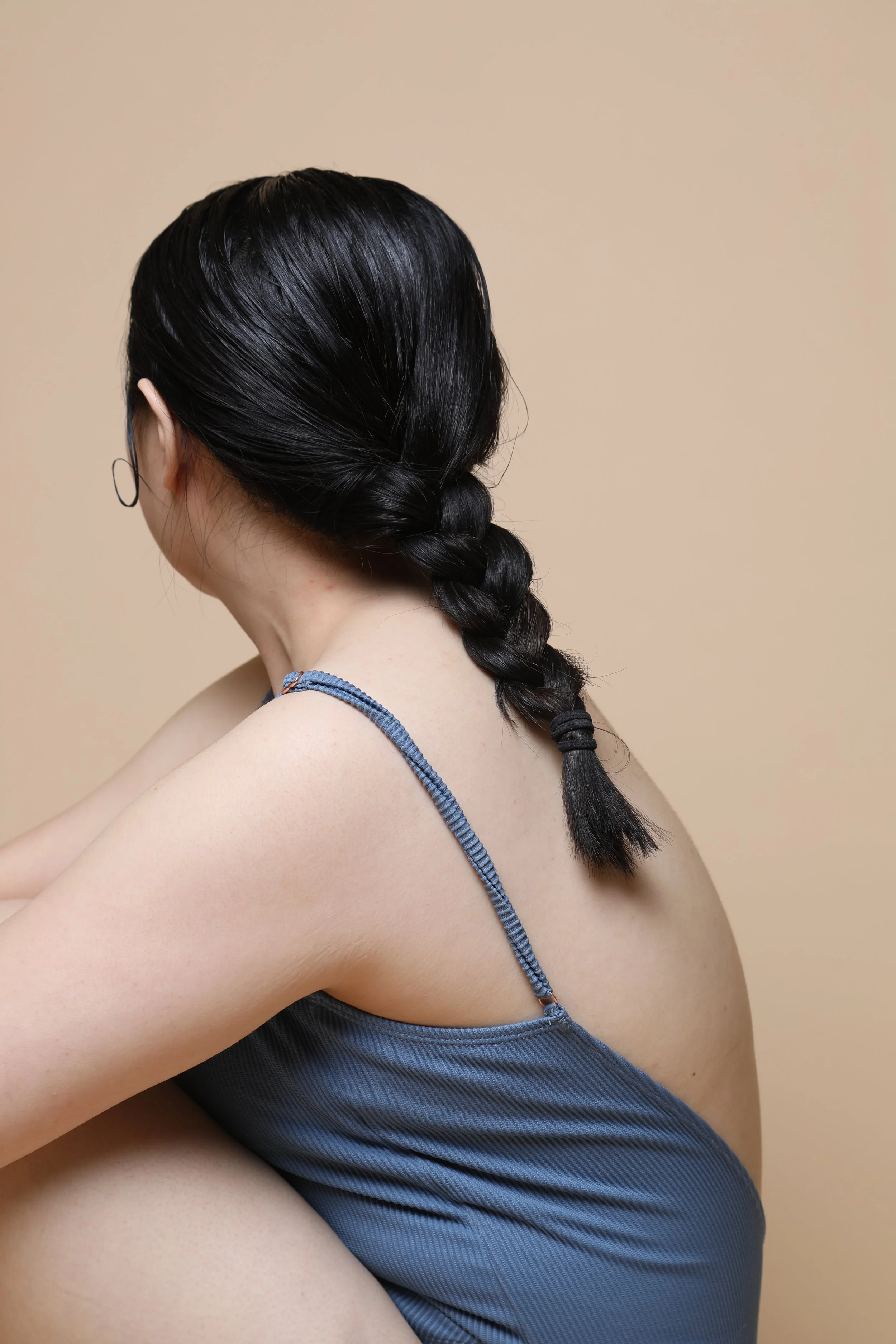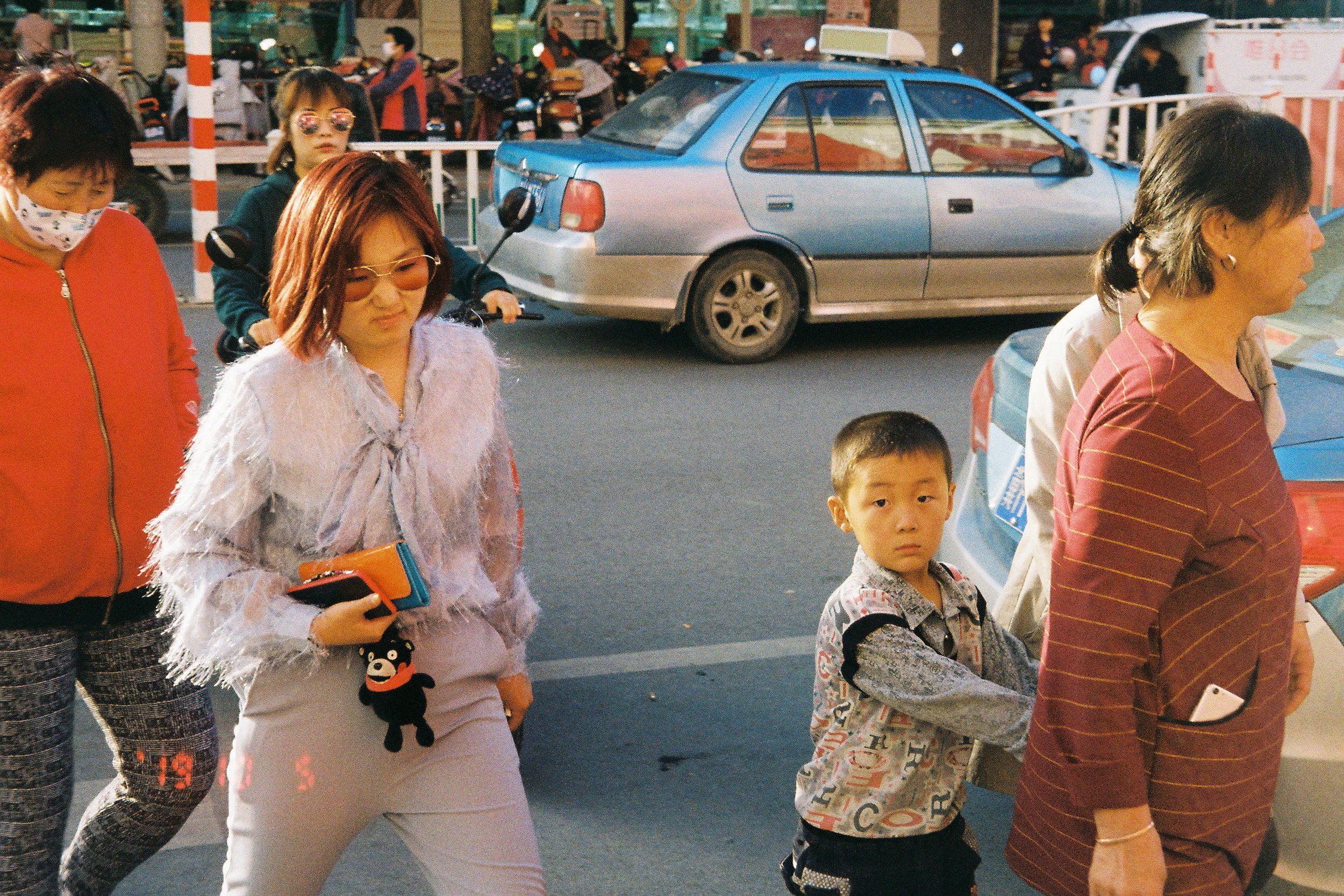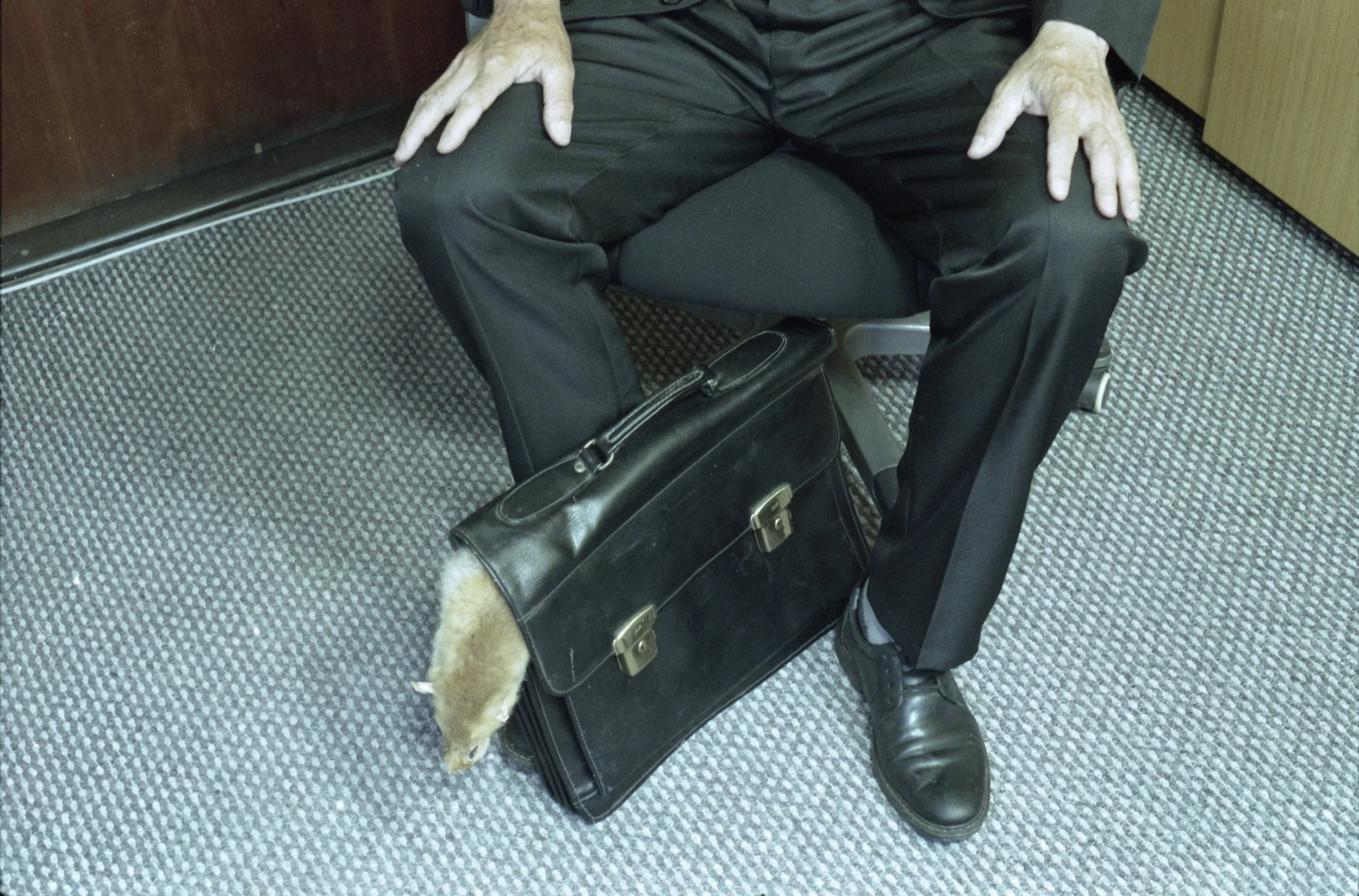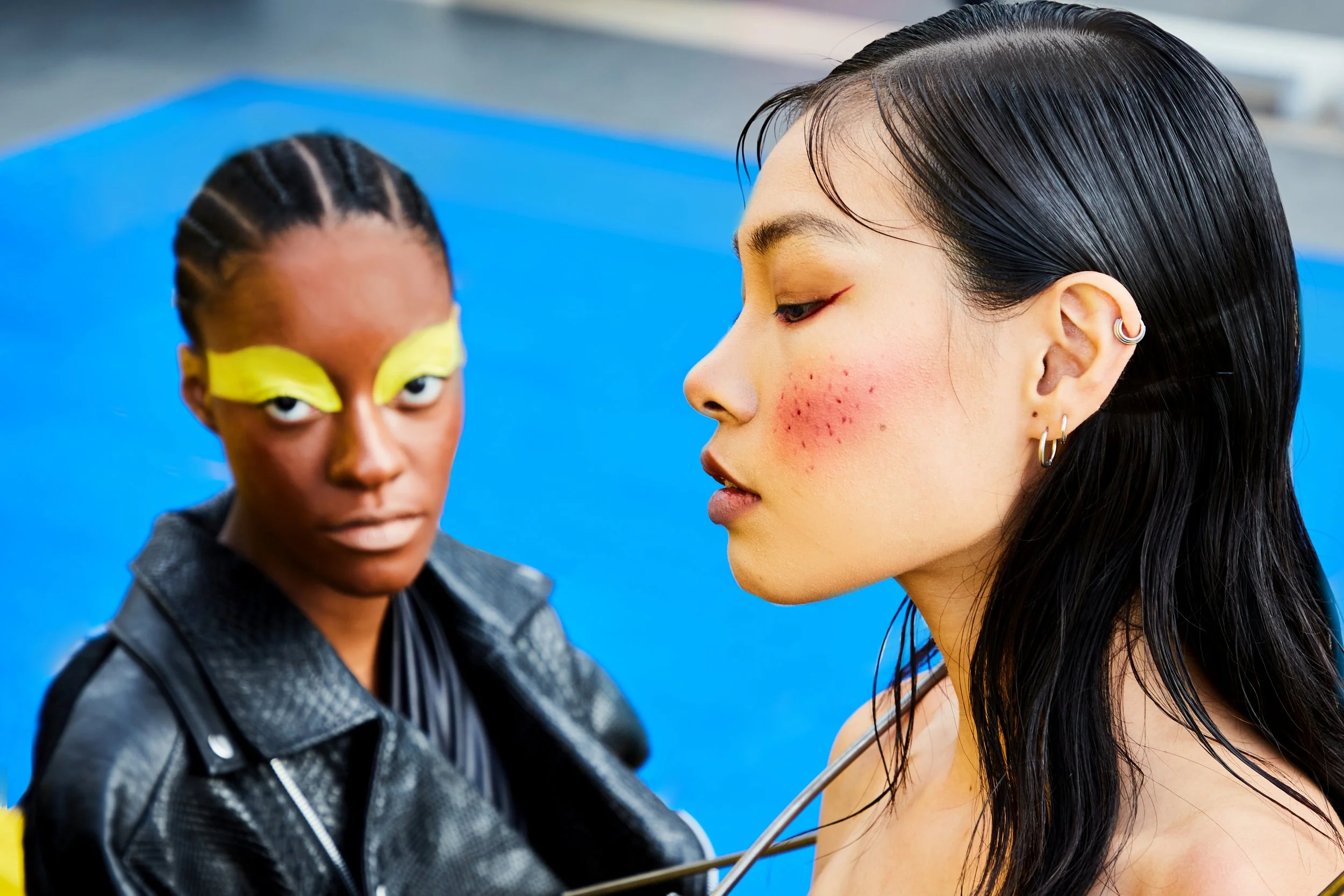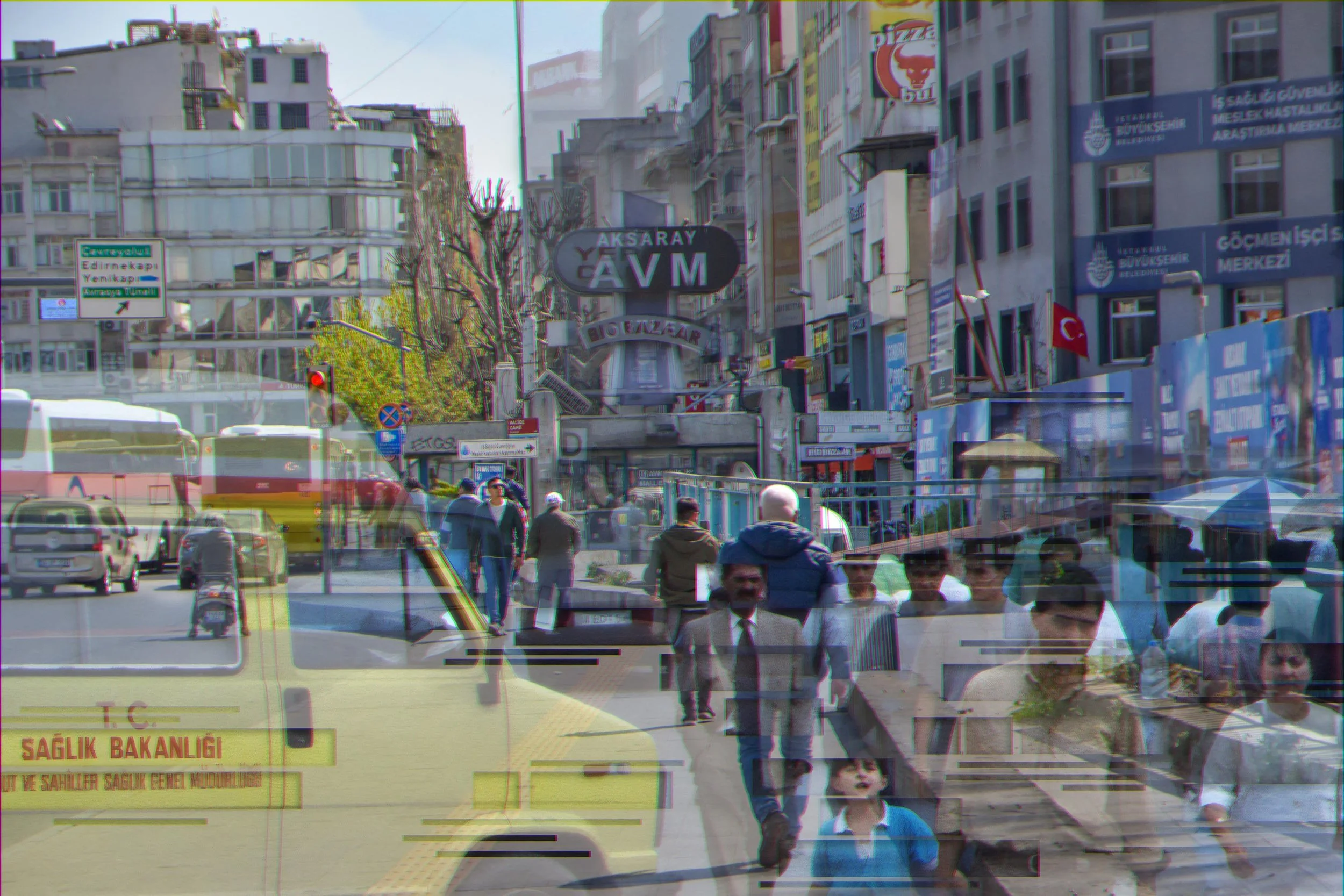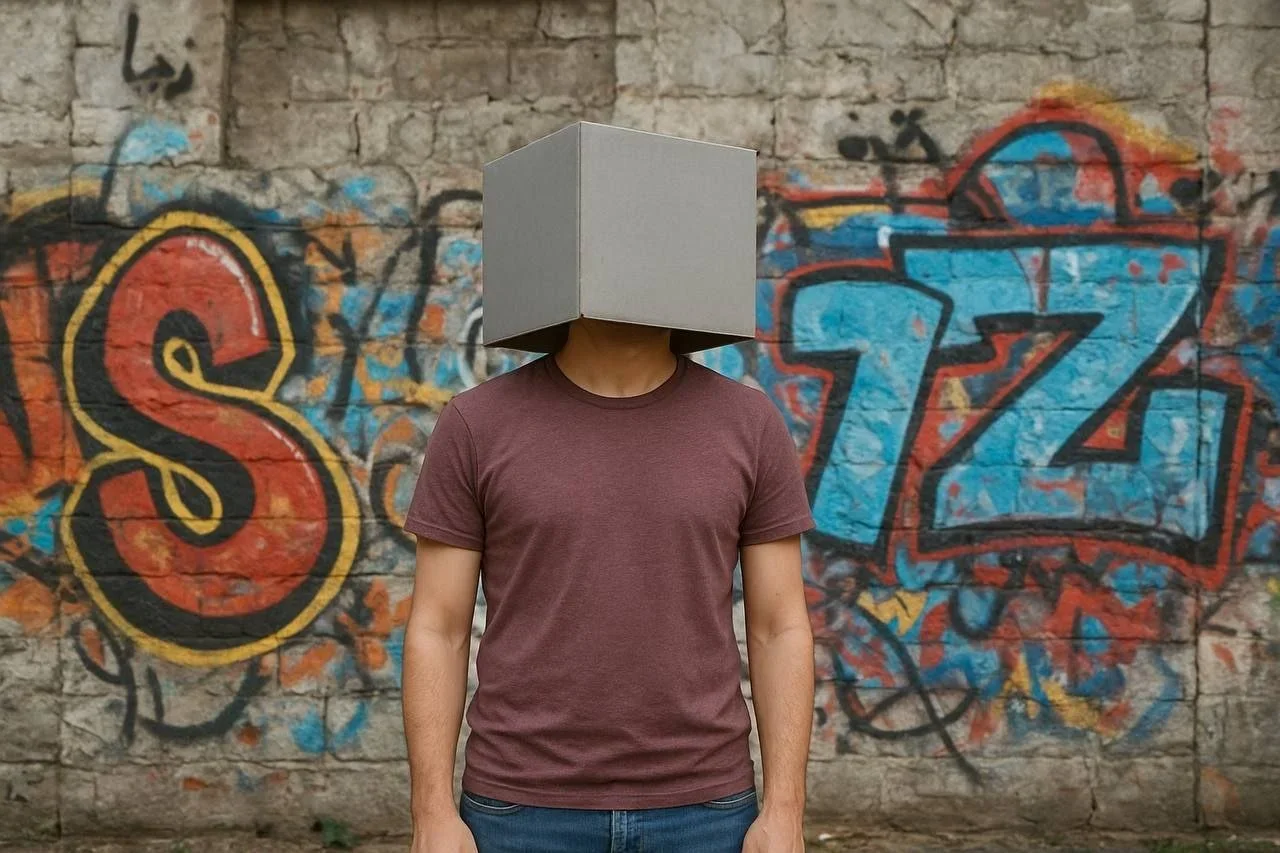10 Questions with Chun Han
Chun is a photographer and creative director based in New York. She was born in China in 1997 and grew up in Shanxi, a small city in the middle of Northern China. She studied Theatre and Communication majors at the University of California San Diego and graduated in 2019. She later graduated with a master's degree in Fashion Photography at the School of Visual Arts in 2022. Chun's photography and video work focuses on the relationship between human beings and the social environment and serve as a therapy practice for herself to reconcile with her social and political trauma from current events.
Chun Han - Portrait
ARTIST STATEMENT
Chun has been creating works focus on Asian women's social dilemmas, photographing Asian women and women's bodies, especially her self-portraits (Bad Hair Day, Body Talk). Growing up in a small city with the most reserved beauty standards, she has not felt confident about herself, just like most East Asian women do. With aspirational gender studies and practices since college, she realizes that her self-recognition was the most significant for her to grow up regardless. She started to acknowledge her body and try to break the patriarchal rules about beauty and danger.
Her other studio and video work were largely impacted by her theatre background by staging contrasting colors and theatrical effects in the images. Conceptually, in the work of Waiting for Godot, Township, and Wonderland, she was inspired by the theatre of the absurd, especially by the playwright Samuel Beckett and his play Waiting for Godot. She would like to make surreal images that allow extensive and abstract thoughts, as well as open to various interpretations. In the midst of this chaos, she discovers solace and tranquility in the vastness of Nomanland. Through her lens, she captures the untamed beauty of nature, creating captivating images that evoke a sense of profound serenity. With each click of the shutter, she not only immortalizes the external landscapes but also reveals her inner journey towards finding harmony amidst the turbulent currents of existence. Chun's photography serves as a testament to her resilience, as she defies societal norms and embarks on a quest for inner peace, empowering others to seek their own sanctuary in the midst of life's tumultuous tapestry.
Empty Talking, Photography, 16x9 inch, 2021 © Chun Han
INTERVIEW
Please, tell us a little bit about your background and studies. You studied Theater and communication; when did you get interested in photography?
My interest in photography began at a young age, specifically during the summer of my seventh grade. My mom handed me a small camera before I went to a summer camp in the U.K. I took some photos when we had parties, and during the travel, I was always the one left behind on walking focusing too much on looking through the lens. Upon sharing images on social media, I was pleasantly surprised by the influx of compliments from friends, applauding my ability to encapsulate happiness and create a sense of nostalgia. I was very encouraged and continued to take more photos. I received a DSLR at the graduation of my middle school, I started to take more photos and started to learn the techniques of taking good pictures, and that became the start of my photography career.
Wonderland, Photography, 16x24 inch, 2019 © Chun Han
How did you decide to pursue a career as a photographer? And are you still following the same aspiration?
Initially, my decision to pursue photography stemmed from a desire to capture the inherent beauty found within still images. However, after I delved deeper into my creative journey, I unearthed a more profound yearning to express the concept of injustice. Specifically, I became captivated by the portrayal of women and their bodies, recognizing the prevalent disparities they face. In this evolving phase of my artistic exploration, I find myself drawn to documenting and shedding light on significant societal issues that resonate with me as a photographer.
Your studies, especially in college dealing with gender studies, seem to have greatly impacted you as a woman and an artist. Can you tell us more about it? What theories or concepts did you embrace with your work?
I think the most impactful word for me is the misogyny. I grew up in a highly patriarchal East Asian country, where we have been rammed into our minds that women are the subjects. This overarching concept of misogyny has prompted me to reflect on our daily perceptions of women. Are these perceptions truly reflective of how women should be treated, or are they a product of societal conditioning aimed at elevating men? As I create, I also migrate this theory to challenge myself to break the rules, to capture the world from a female viewpoint, and to love like a woman.
Body Talk 1, Photography, 16x24 inch, 2021 © Chun Han
Body Talk 2, Photography, 16x24 inch, 2021 © Chun Han
In your work, you often use the female body, especially your own, as the main subject. What messages would you like to convey?
Growing up in an East Asian country where societal beauty standards predominantly favored a super-skinny physique, I was not a confident girl at all. Therefore, it was a very natural process of me putting myself there as a model, authentically expressing my deepest concern and passion. It began with confusion; I did not know how to perceive my body from the knowledge accompanied by growing up. However, through the process of capturing myself, it became a powerful catalyst for acceptance and self-love. I think using myself as a subject is a reconciliation for my body, as well as conveying the message for girls to look at their own bodies and treat them as treasures.
In your statement, you declare that your work "focuses on the relationship between human beings and the social environment and serves as a therapy practice for herself to reconcile with her social and political trauma from current events." How do you interpret and transfer your own experiences into your photography?
I claim myself as an advocate for people who needs help and equality and for myself, too, in some circumstances. There are so many things going on in the world right now that some people don't have the voice to speak out loud for themselves; I would like my photography to be at least some contribution to a better world. Meanwhile, expressing myself in my work is also a way for me to get along better with this world. For example, my video work "Silencing" is a conceptual work that corresponds to the pandemic and the post-apocalyptic suffering that human beings are bearing from it. I also embedded my lost feelings into the videos to release them and for people who feel lost as well.
Township 2, Photography, 16x24 inch, 2019 © Chun Han
And what would you like the viewers to receive when confronting your work?
My work never provides the solution to any of the issues that I am bringing up in my work, but only to say, "Me Too."
Is there any other medium or theme you would like to tackle in the future?
I graduated from the Theatre department and started to do photography, but I still really want to go back to the theatre one day, using this collaborative and maybe more outburst art form to express feelings. I think theatre will provide a more collective and immersive experience for the audience.
No Man Land, Photography, 30x20 inch, 2022 © Chun Han
You have already exhibited both in the USA and internationally, and your work has been published in prestigious magazines. What do you think of these experiences? What was one thing that positively impressed you and one on the contrary that you particularly disliked?
The publishing and exhibiting experience mean a lot to me, not only as a broader recognition but also means my work has impressed them. When I first time showed the "Body Talk" project to my friends and my professor, we were all crying together and telling each other what we had been through with our bodies as women. The moment was so powerful to me that it ignited a profound desire within me to become a female photographer who amplifies the non-dominant perspective and talks about women's own issues in photography.
Speaking of the future, do you have any upcoming exhibitions or collaborations? Any new project you want to share with us?
My work will be at Rome International Art Fair from July 14th through July 27th, 2023.
And finally, where do you see yourself and your work five years from now?
Let me dream about my work exhibiting in Fotografiska in New York!
Artist’s Talk
Al-Tiba9 Interviews is a promotional platform for artists to articulate their vision and engage them with our diverse readership through a published art dialogue. The artists are interviewed by Mohamed Benhadj, the founder & curator of Al-Tiba9, to highlight their artistic careers and introduce them to the international contemporary art scene across our vast network of museums, galleries, art professionals, art dealers, collectors, and art lovers across the globe.

